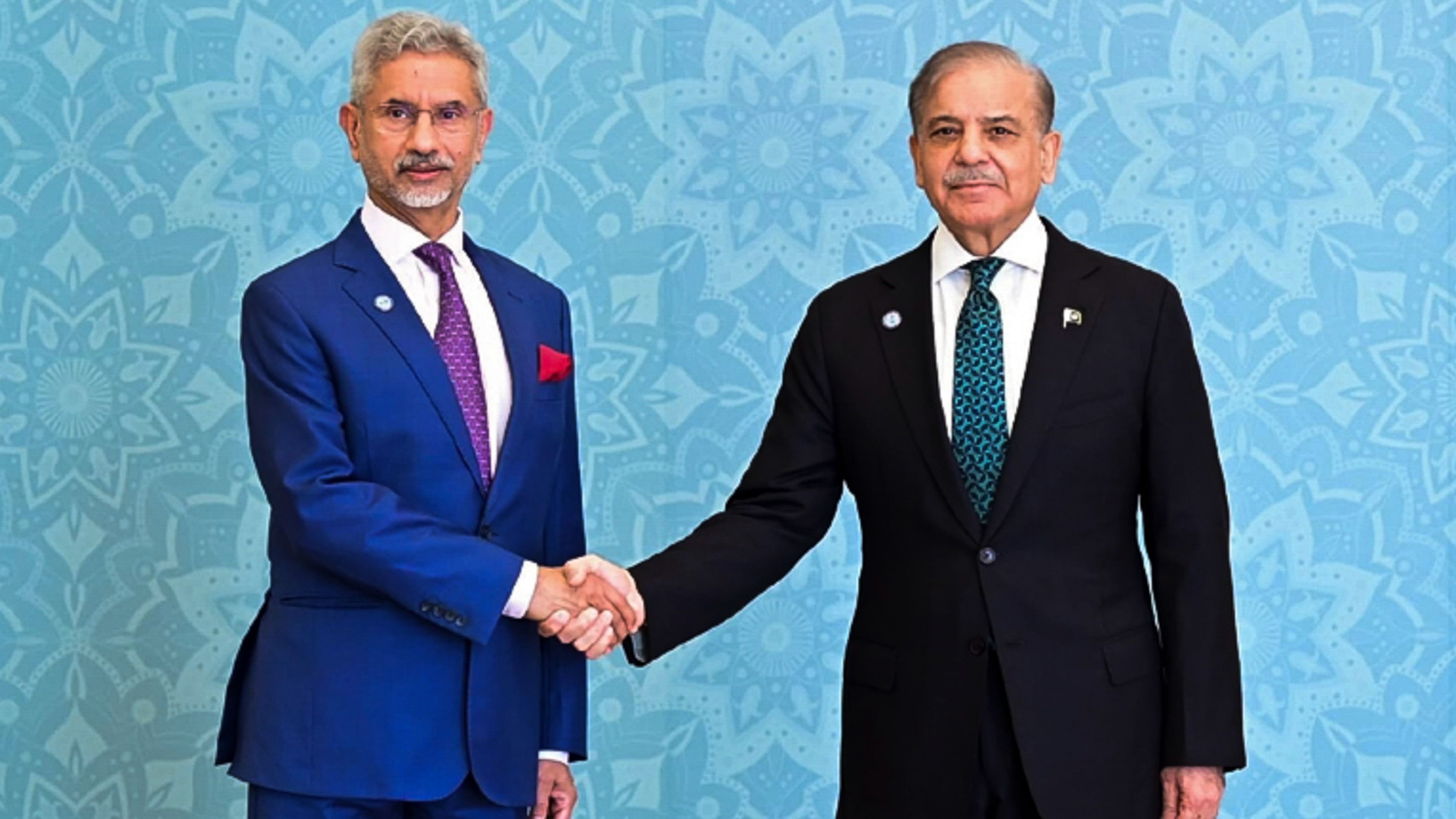
External Affairs Minister S Jaishankar shakes hands with Pakistan Prime Minister Shehbaz Sharif at the 23rd meeting of the SCO Council of Heads of Government, in Islamabad, Wednesday.
Credit: PTI Photo
The Shanghai Cooperation Organisation, which held a meeting in Islamabad on October 15-16, must be relieved that unlike in Goa in May 2023, this session was not overshadowed by an India-Pakistan tiff. The two neighbours, who joined the SCO in 2017, appeared to be at their civilised best, determined not to pursue their stated positions on bilateral issues aggressively. The host, Pakistan's Prime Minister Shehbaz Sharif, did not mention the K-word at all, that too days after lashing out at India in the UN General Assembly for its "illegal" steps and alleged rights violations in Kashmir. External Affairs Minister (EAM) S Jaishankar referred in generic terms to the triple scourge of “terrorism, extremism and separatism” as an obstacle to trade and connectivity in the region, and made only a passing reference to “cross-border terrorism”. The absence of acrimony, an exchange of pleasantries between PM Sharif and the EAM, and a “conversation” between Jaishankar and his Pakistani counterpart, Ishaq Dar, has set off speculation that the deep freeze in ties may be thawing. Talk of resumption of cricketing ties, perhaps with the Indian team visiting Pakistan for the Champions' Trophy in February, is in the air, although Indian officials have denied any concrete agreement on the same. Restoration of High Commissioners and staff strength at the diplomatic missions in both capitals could be another low-hanging fruit. Former PM Nawaz Sharif has called Jaishankar's visit, the first by an Indian minister in eight years, a “beginning”. He expressed the wish that the two sides can “pick up the threads” of the dialogue between him and India's former PM, the late A B Vajpayee.
Much will depend on the strength of such wishes to withstand the tests on the ground. The ruling Sharifs themselves have little political capital at the moment. It is not known if the Pakistan Army under its new chief Gen. Asim Munir shares Nawaz Sharif's views on trade and connectivity. The two armies have been quiet on the Line of Control since 2021, but the spate of terrorist incidents in Jammu, many of them directed at the Indian Army, have challenged the Indian security forces, and belied the belief that an economically-strapped Pakistan, with its Army distracted by internal political turmoil and by its security challenges on the western front, would desist from cross-LoC provocation. Despite the evident difficulties, for its part, India must not reject an offer of dialogue from Pakistan, especially because it can be confident of a strong footing in Jammu & Kashmir, where an elected government has just taken office. The next step, the restoration of statehood, is awaited. This should also make it easier for Pakistan to come out of its own corner on the Kashmir issue.
The SCO meeting itself was predictable, with all members, except India, signing off once again on China's Belt and Road Initiative. Indian interest in this China-dominated group is now tempered with a sense of its limitations. What it helps Delhi do is play the balancing game with Washington DC, and continue to make the case for a multipolar world, while prioritising its relations with the US.